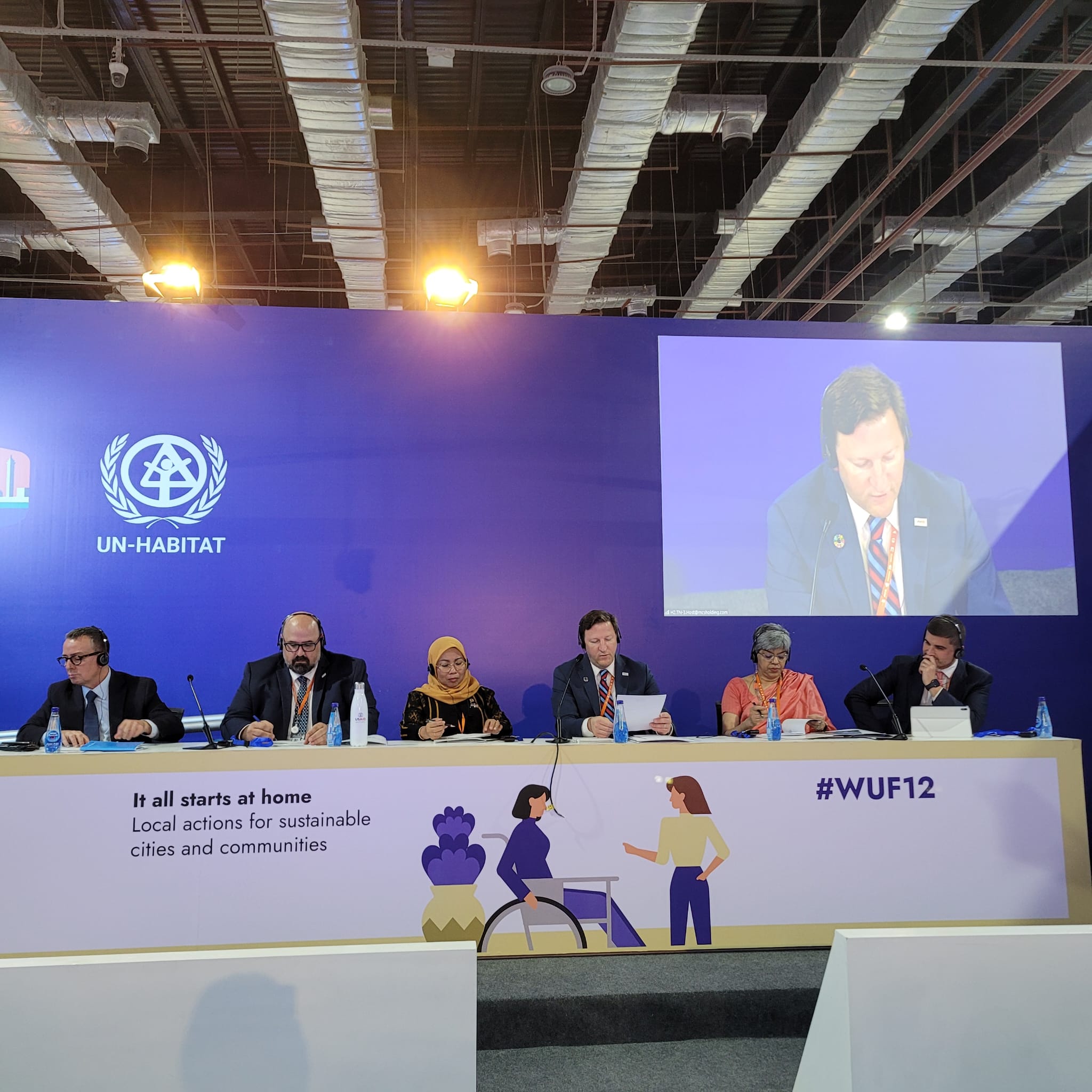On 6 November 6 2024, the Local2030 Coalition and USAID co-hosted an impactful networking event “Building Financial Sustainability Through Localization” at the Twelfth Session of the World Urban Forum (WUF12). This session brought together donor and financial institutions, the UN System and local actors to explore innovative approaches for channeling resources to local actors, strengthening financial sustainability for advancing the Sustainable Development Goals (SDGs) at the local level.
The event addressed the critical need to shift financial support from national to local levels to empower communities to drive sustainable development. While the challenges facing the achievement of the SDGs are inherently local, funding has historically remained centralized, creating barriers for local actors to fully engage in sustainable development efforts.
Key Themes Discussed
Participants explored several pressing issues that hinder financial sustainability and localization, such as:
- Capacity Bottlenecks: Local governments struggle with limited revenue capacity, system alignment with national operations and financial trade-offs from risk assessments. Philanthropies and international institutions can partner with international financial institutions to foster long-term, inclusive financing focused on social, cultural and environmental goals. In addition, simplifying reporting and strengthening local capacity are key to improving access to financing.
- Lack of Collaborative Planning: Co-creation and adapting financial strategies to local contexts during the design phase are critical to success.
- Shifting Perspectives: Financing must move beyond individual projects to focus on achieving holistic territorial development, considering local cultural and social dynamics.
- Barriers to Investment: Small-scale operationalization and complex reporting requirements discourage local actors and donors.
- Participatory Leadership: There are many ways that resources move to the local level, and there are opportunities for reimagining how that can happen and how strong local level participatory leadership can be centred.
Panelists exchanged best practices and addressed the challenges of building financial sustainability at the local levels.
Recommendations for Action
The event concluded with the following actionable recommendations to strengthen financial sustainability at the local level:
- Maximizing Resources for SDG Success: To achieve the SDGs with limited resources, local authorities should leverage land assets, collaborate with the private sector and boost own-source revenue.
- Building Financial Credibility: Cities seeking national or international funding must demonstrate financial accountability, creditworthiness and trust, with development partners supporting capacity building in these areas.
- Empowering Local Decision-Making: Empowering local decision-making is critical, ensuring local actors lead while civil society facilitates inclusive participation.
- Simplifying Reporting Requirements: Simplifying reporting and improving capacity for measurement can help local actors access larger grants, focusing on long-term impacts beyond project lifecycles.
- Integrating Funding and Financing: A mix of funding and financing is essential, with funding building a foundation of accountability, fostering stronger fiscal systems for sustainable financing.
Conclusion
The “Building Financial Sustainability Through Localization” networking event showcased the vital role of financing local actors and reimagining financial systems to advance the SDGs. Through meaningful dialogue and actionable recommendations, participants underscored the need for collaboration, innovative financing approaches and strengthened local capacities. By addressing these challenges and fostering inclusive, data-driven decision-making, local communities can become key drivers of sustainable development, bridging the gap between global goals and local action.


Comments